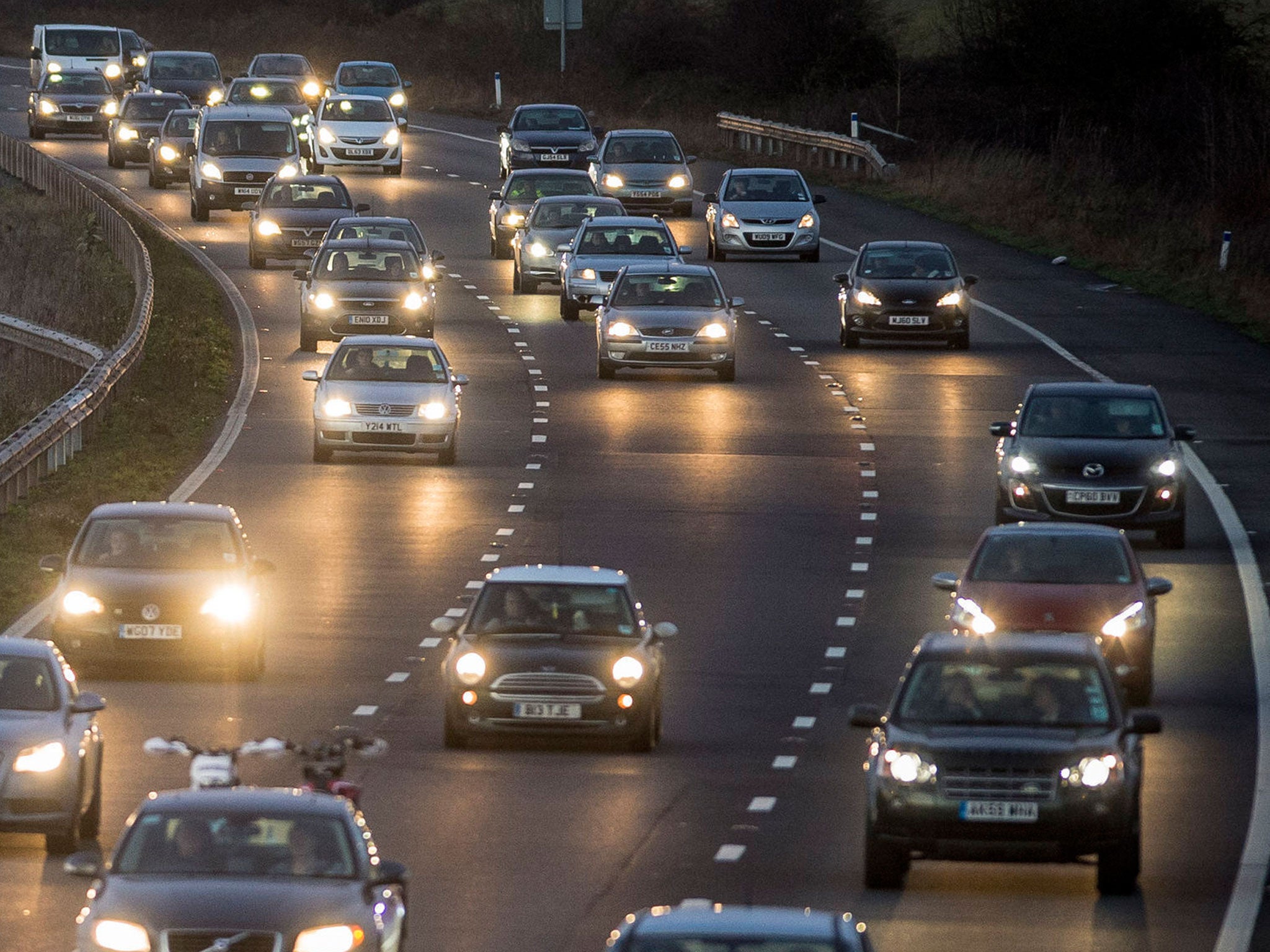As a driver, I would support pay-per-mile road pricing
It may seem regressive but it's probably the fairest way to regulate road use


Your support helps us to tell the story
From reproductive rights to climate change to Big Tech, The Independent is on the ground when the story is developing. Whether it's investigating the financials of Elon Musk's pro-Trump PAC or producing our latest documentary, 'The A Word', which shines a light on the American women fighting for reproductive rights, we know how important it is to parse out the facts from the messaging.
At such a critical moment in US history, we need reporters on the ground. Your donation allows us to keep sending journalists to speak to both sides of the story.
The Independent is trusted by Americans across the entire political spectrum. And unlike many other quality news outlets, we choose not to lock Americans out of our reporting and analysis with paywalls. We believe quality journalism should be available to everyone, paid for by those who can afford it.
Your support makes all the difference.As with most official pronouncements, when I heard the Transport Secretary set out his plans to consult on road pricing my mind almost unconsciously went to the three main questions: how much is this going to cost me? When do I get hit with it? And how can I get round it?
As far as I can gather, the answers are: it will apparently cost me nothing because they’re just going to get the lorry drivers first; it won’t be implemented for the “foreseeable future” (which through a further mental filter actually means after the election if they get a decent enough majority, so say in about 2023); and it’ll be tricky to avoid it without breaking the law.
That would usually be that and I’d put such a move down to the “war on the motorist” that the Tories pledged to end but which is still seeing a few skirmishes breaking out here and there (though the modest but highly effective investments in the A-roads Chris Grayling announced are very smart and welcome, if long overdue).
But, just for a change I tried to be a bit more grown up, as drivers are prone not to be, and think hard about the motoring future. According to the Chancellor, the foreseeable future has a shorter horizon, and Philip Hammond thinks that by 2021 driverless cars will be on British roads.
In theory, and obviously I’m not exactly advocating this, you could consume six pints of lager on Christmas Eve and then get into your autonomous car, tell it to take you home, and you could even eat your kebab on the way – all perfectly safe, properly insured and legal because the car is driving itself.
Children, some people with disabilities who can’t use a car now, those who could never quite get the hang of driving, the elderly who’ve been told to give up motoring, maybe an especially bright poodle – all would be able to enjoy the benefits of the car. We are, without getting overexcited, on the verge of the next transport revolution.
You can see the problem though. Once we all have our electric personal transportation pods what will happen to the roads? Apart from some toll bridges, motorway sections, and the London congestion charge zone today, they are free to use at the point of use. Some method of prioritising essential and emergency traffic has to be found, to push users out of peak times and busy roads into quieter less-congested times and routes.
Well there is no better method of rationing than by price, though I admit that busy times and roads will become more the preserve of the wealthy in such a set-up. Road pricing is, then, a bit regressive but it is probably the fairest way to regulate road use. In a world where electrification also threatens traditional sources of government revenue, it needs to be brought in to protect the funding of public services, including investment in roads and public transport, because all those duties on petrol and diesel will start to decline sharply. Payment by the mile is one easy way to do it.
And even if autonomous cars and electric power doesn’t arrive anytime soon, there is still a case for some road pricing on the most rammed routes at busy times, because the question I didn’t ask myself about what Grayling was saying is “how will this make my car journey shorter and more pleasant?” I just assume that there’ll always be jams and there’s nothing anyone can do about them.
Such is the suspicion of drivers about officialdom – which is after all run by ministers who probably enjoy chauffeur driven official cars and only use the train for publicity stunts – that the thought that they might want to help us doesn’t even cross our minds. Something to ponder as you’re driving home for Christmas.
Join our commenting forum
Join thought-provoking conversations, follow other Independent readers and see their replies
Comments